第95章 Chapter 27(4)
Edmund could not but agree to it. "Yes, that uncle and aunt!
They have injured the finest mind; for sometimes, Fanny, I own to you, it does appear more than manner: it appears as if the mind itself was tainted."
Fanny imagined this to be an appeal to her judgment, and therefore, after a moment's consideration, said, "If you only want me as a listener, cousin, I will be as useful as I can; but I am not qualified for an adviser.
Do not ask advice of _me_. I am not competent."
"You are right, Fanny, to protest against such an office, but you need not be afraid. It is a subject on which I should never ask advice; it is the sort of subject on which it had better never be asked; and few, I imagine, do ask it, but when they want to be influenced against their conscience. I only want to talk to you."
"One thing more. Excuse the liberty; but take care _how_ you talk to me. Do not tell me anything now, which hereafter you may be sorry for. The time may come--"
The colour rushed into her cheeks as she spoke.
"Dearest Fanny!" cried Edmund, pressing her hand to his lips with almost as much warmth as if it had been Miss Crawford's, "you are all considerate thought!
But it is unnecessary here. The time will never come.
No such time as you allude to will ever come. I begin to think it most improbable: the chances grow less and less; and even if it should, there will be nothing to be remembered by either you or me that we need be afraid of, for I can never be ashamed of my own scruples; and if they are removed, it must be by changes that will only raise her character the more by the recollection of the faults she once had. You are the only being upon earth to whom I should say what I have said; but you have always known my opinion of her; you can bear me witness, Fanny, that I have never been blinded. How many a time have we talked over her little errors! You need not fear me;
I have almost given up every serious idea of her; but I must be a blockhead indeed, if, whatever befell me, I could think of your kindness and sympathy without the sincerest gratitude."
He had said enough to shake the experience of eighteen.
He had said enough to give Fanny some happier feelings than she had lately known, and with a brighter look, she answered, "Yes, cousin, I am convinced that _you_ would be incapable of anything else, though perhaps some might not. I cannot be afraid of hearing anything you wish to say. Do not check yourself. Tell me whatever you like."
They were now on the second floor, and the appearance of a housemaid prevented any farther conversation.
For Fanny's present comfort it was concluded, perhaps, at the happiest moment: had he been able to talk another five minutes, there is no saying that he might not have talked away all Miss Crawford's faults and his own despondence.
But as it was, they parted with looks on his side of grateful affection, and with some very precious sensations on hers. She had felt nothing like it for hours.
Since the first joy from Mr. Crawford's note to William had worn away, she had been in a state absolutely the reverse; there had been no comfort around, no hope within her.
Now everything was smiling. William's good fortune returned again upon her mind, and seemed of greater value than at first. The ball, too--such an evening of pleasure before her! It was now a real animation; and she began to dress for it with much of the happy flutter which belongs to a ball. All went well: she did not dislike her own looks; and when she came to the necklaces again, her good fortune seemed complete, for upon trial the one given her by Miss Crawford would by no means go through the ring of the cross. She had, to oblige Edmund, resolved to wear it; but it was too large for the purpose. His, therefore, must be worn; and having, with delightful feelings, joined the chain and the cross--those memorials of the two most beloved of her heart, those dearest tokens so formed for each other by everything real and imaginary--and put them round her neck, and seen and felt how full of William and Edmund they were, she was able, without an effort, to resolve on wearing Miss Crawford's necklace too.
She acknowledged it to be right. Miss Crawford had a claim; and when it was no longer to encroach on, to interfere with the stronger claims, the truer kindness of another, she could do her justice even with pleasure to herself.
The necklace really looked very well; and Fanny left her room at last, comfortably satisfied with herself and all about her.
Her aunt Bertram had recollected her on this occasion with an unusual degree of wakefulness. It had really occurred to her, unprompted, that Fanny, preparing for a ball, might be glad of better help than the upper housemaid's, and when dressed herself, she actually sent her own maid to assist her; too late, of course, to be of any use.
Mrs. Chapman had just reached the attic floor, when Miss Price came out of her room completely dressed, and only civilities were necessary; but Fanny felt her aunt's attention almost as much as Lady Bertram or Mrs. Chapman could do themselves.